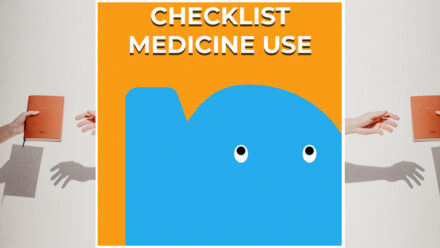
Collaborative medication decision: it’s a right and a choice people have in the process of reducing their antipsychotic medication.
During our online consultation (on PsychoseNet) we get a lot of questions from people who want to reduce the dose of their antipsychotic medication or who want to wean themselves off it. Sometimes they are told by their psychiatrist that this isn’t an option and that the psychiatrist does not want to help them with this.
And the questions people then ask are: can the psychiatrist refuse this? If so, do I have to find someone else? What does the law say about this?
Imagine you have cancer, and you want to stop taking your medication
Imagine someone has cancer, and is having chemotherapy. The chemotherapy is working, but the patient tells his doctor he wants to stop the chemo because he feels like his life is complete and he doesn’t want to carry on. Is the doctor allowed to refuse the patient to stop the chemo? The answer is no. If the patient is mentally competent the doctor must wean the patient off the chemo and support the patient to the best of his ability in what comes next. This is stated in the Dutch Medical Treatment Contracts Act, which all doctors have to comply with,
So how does this affect antipsychotic medication?
When clients who take antipsychotic medication consider weaning themselves off it, it brings up many questions and concerns. Is it safe? What are the risks? What are the alternatives? A recent development in Dutch healthcare strengthens clients’ right to be actively involved in decisions about their treatment, a concept we call “deciding together”.
Collaborative medication decision: what does this entail?
In 2020, the Dutch Medical Treatment Contracts Act was tightened up. The notion of “deciding together” is now the central component. This means the wishes, concerns, and preferences of the client are now asked about and taken into consideration when making medial decisions. The idea is that clients, by being actively involved in their own care plan, can make more informed decisions that are better suited to their own values and preferences.
What does this mean for clients who use antipsychotic medication?
When a patient is stable and mentally competent a psychiatrist cannot ignore their wish to reduce or stop their medication. Even if the psychiatrist thinks there are risks, the client still has the right to make decisions about their bodies and treatment. The psychiatrist can report their concerns in the medical file, but the decision making process has to take place in cooperation with the client.
The benefits of collaborative medication decision
Research has shown that clients who are actively involved in their care:
-Are more satisfied with their decisions
– Are more knowledgeable about their condition and treatment options
– Are more likely to stick to their treatment
– Most importantly, health care professionals who involve their clients in their treatment experience more satisfaction with their work.
Support in the process
There are several tools and resources especially developed to help doctors and clients in the process of ‘deciding together’. These tools can help them understand their options, discuss the risks and advantages of different treatment options, and identify the wishes and preferences of the client. These tools are necessary, because not all psychiatrists are familiar with the legislation, and the freedom that clients have to start reduction of their medication, even if it carries a risk.
In the philosophy of recovery this is called ‘the dignity of risk’. It’s the freedom to experiment, and learn from it over time. Recovery is a tricky process of trial and error. The experiment may not be successful, but that doesn’t mean that the person can’t learn from it.
Collaborative medication decision: Conclusion
Reducing antipsychotic medication is an important decision. Thanks to the tightened up Dutch Medical Treatment Contracts Act clients now have the right to be actively involved in this decision. Psychiatrists cannot simply refuse just because they think it’s risky.
As a client you have the right to ask questions, express your concerns, and be actively involved in decisions about your own (mental) health. Working together with your healthcare professional will make it possible for you to make an informed decision that suits you best.
*Note from translator: As a Dutch person residing in the UK, I was interested to find out whether the method of Collaborative Medication Decision is also practised in this country. The answer is yes, and it’s called shared decision-making. Clinicians are obliged to support their patients’ choices about their treatment, and take into consideration their preferences, beliefs, and values. There are three key elements of shared decision making:
- Recognising that a decision about a patient’s treatment needs to be made.
- Taking note of and understanding all the evidence that’s available.
- As I mentioned before, the patient’s values, beliefs, and choices.
Clearly, it’s not just a case of health care providers listening to and respecting their patients’ wishes. It’s about working together to reach a decision that is best for the patient. The clinicians knowledge and experience are also taken into account, as they know more about different options, certain risks, and benefits.





Comments: